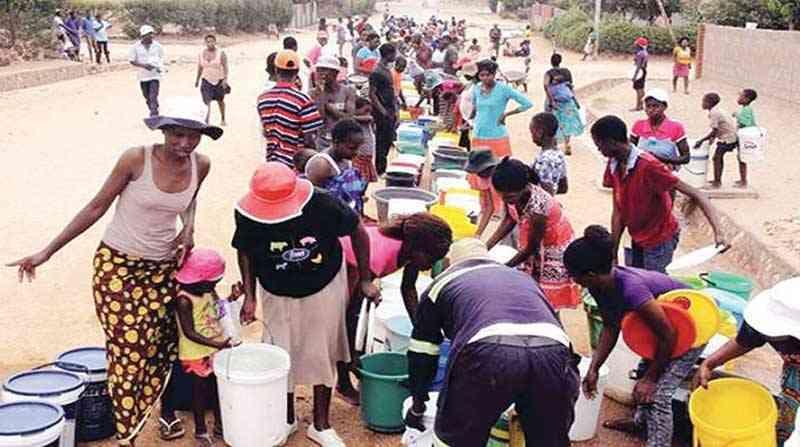By GRACIOUS DANIEL
Africa-Press – Zimbabwe. HARARE’S severe water shortages are being exacerbated by growing demand from neighbouring towns, according to the newly-adopted Harare Master Plan (2025-45), raising concerns over sustainability and prompting calls for independent water sources.
The plan revealed that Chitungwiza, Ruwa and Epworth — rapidly expanding towns surrounding the capital — rely on Harare’s already strained water supply system.
“Harare’s dominance as the capital creates structural dependence from surrounding local authorities,” the report stated.
“More than half the population of these areas spend their day in Harare, further pressuring resources.”
Harare has long struggled with water rationing, ageing pipe network and insufficient purification capacity.
Over the years, the capital has heavily depended on Lake Chivero for water supply, a source that has suffered from heavy siltation, pollution and has not been spared by successive droughts experienced in the
country.
As water levels dwindle, among a host of other issues, Harare Municipality has been increasingly utilising Lake Manyame as an alternative source.
The city has been working to improve water infrastructure and treatment facilities at Morton Jaffray to better utilise Lake Manyame.
Despite Prince Edward and Harava dams being close to Chitungwiza, the dormitory town has always relied on Harare as it does not have its own water supply system.
Government is planning to construct Muda Dam and a 26km pipeline from Muchekeranwa Dam to Wenimbi Dam for onward conveyancing to Harare, as well as having Harava Dam feed other local authorities.
The master plan pointed out that the city was not designed to sustain current demand levels, worsened by unchecked peri-urban expansion.
To address this, neighbouring towns are exploring independent water sources.
“By securing their own raw water supplies, these towns aim for self-sufficiency and reduction in reliance on Harare,” the report noted.
However, it stressed that collaboration between municipalities — through shared infrastructure and governance — could cut costs and improve efficiency.
In an interview, Alice Kuvheya, director of the Chitungwiza Residents Trust, expressed frustration over the prolonged water crisis.
“Chitungwiza has over half a million residents, but no independent water source,” she said.
“For 11 years, we have begged government to act.
“Harare should not blame us. They should join us in demanding action from central government.”
Kuvheya urged Harare to partner neighbouring towns to push for long-term solutions rather than complain about sharing resources.
“The water from Harare is not even enough for us. Instead of pointing fingers, we must unite to pressure the President (Emmerson Mnangagwa) and central government to provide sustainable solutions,” she
added.
The master plan emphasises joint infrastructural development as key to alleviating the crisis.
Without urgent intervention, Harare’s water woes — and those of its neighbours — will worsen.
Source: NewsDay
For More News And Analysis About Zimbabwe Follow Africa-Press






